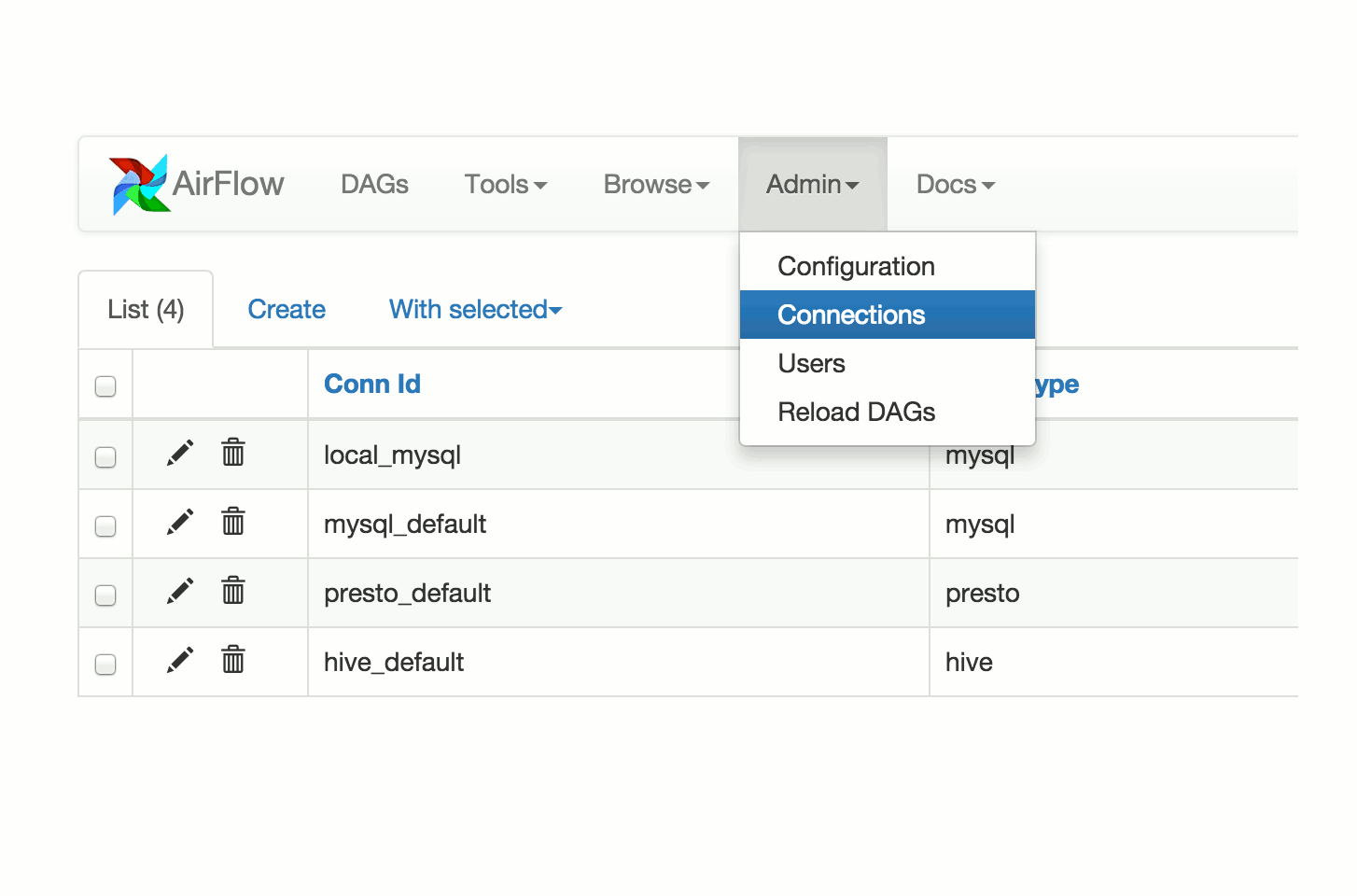
Apache Airflow Documentation¶
Airflow is a platform to programmatically author, schedule and monitor workflows.
Use airflow to author workflows as directed acyclic graphs (DAGs) of tasks. The airflow scheduler executes your tasks on an array of workers while following the specified dependencies. Rich command line utilities make performing complex surgeries on DAGs a snap. The rich user interface makes it easy to visualize pipelines running in production, monitor progress, and troubleshoot issues when needed.
When workflows are defined as code, they become more maintainable, versionable, testable, and collaborative.

Principles¶
Dynamic: Airflow pipelines are configuration as code (Python), allowing for dynamic pipeline generation. This allows for writing code that instantiates pipelines dynamically.
Extensible: Easily define your own operators, executors and extend the library so that it fits the level of abstraction that suits your environment.
Elegant: Airflow pipelines are lean and explicit. Parameterizing your scripts is built into the core of Airflow using the powerful Jinja templating engine.
Scalable: Airflow has a modular architecture and uses a message queue to orchestrate an arbitrary number of workers. Airflow is ready to scale to infinity.
Beyond the Horizon¶
Airflow is not a data streaming solution. Tasks do not move data from one to the other (though tasks can exchange metadata!). Airflow is not in the Spark Streaming or Storm space, it is more comparable to Oozie or Azkaban.
Workflows are expected to be mostly static or slowly changing. You can think of the structure of the tasks in your workflow as slightly more dynamic than a database structure would be. Airflow workflows are expected to look similar from a run to the next, this allows for clarity around unit of work and continuity.
Content¶
- Project
- License
- Quick Start
- Installation
- Tutorial
- How-to Guides
- Setting Configuration Options
- Initializing a Database Backend
- Using Operators
- BashOperator
- Dingding Operators
- Google Cloud Operators
- Google Cloud Bigtable Operators
- Google Cloud Build Operators
- Google Compute Engine Operators
- Google Cloud Functions Operators
- Google Cloud Storage Operators
- Google Cloud Natural Language Operators
- Google Cloud Spanner Operators
- Google Cloud Text to Speech Operators
- Google Cloud Speech to Text Operators
- Google Cloud Sql Operators
- Google Cloud Transfer Service Operators
- Google Cloud Translate Operators
- Google Cloud Speech Translate Operators
- Google Cloud Video Intelligence Operators
- Google Cloud Vision Operators
- PythonOperator
- Managing Connections
- Securing Connections
- Rotating encryption keys
- Writing Logs
- Celery Executor
- Dask Executor
- Scaling Out with Mesos (community contributed)
- Running Airflow behind a reverse proxy
- Running Airflow with systemd
- Running Airflow with upstart
- Using the Test Mode Configuration
- Checking Airflow Health Status
- Define an operator extra link
- Tracking User Activity
- UI / Screenshots
- Concepts
- Data Profiling
- Command Line Interface Reference
- Positional Arguments
- Sub-commands:
- backfill
- list_dag_runs
- list_tasks
- clear
- pause
- unpause
- trigger_dag
- delete_dag
- pool
- variables
- kerberos
- render
- run
- initdb
- list_dags
- dag_state
- task_failed_deps
- task_state
- serve_logs
- test
- webserver
- resetdb
- upgradedb
- scheduler
- worker
- flower
- version
- connections
- create_user
- delete_user
- list_users
- sync_perm
- next_execution
- rotate_fernet_key
- Scheduling & Triggers
- Plugins
- Security
- Time zones
- REST API Reference
- Integration
- Azure: Microsoft Azure
- AWS: Amazon Web Services
- Databricks
- GCP: Google Cloud Platform
- Cloud Speech Translate Operators
- Qubole
- Metrics
- Kubernetes
- Lineage
- Changelog
- Airflow 1.10.5, 2019-08-30
- Airflow 1.10.4, 2019-08-04
- Airflow 1.10.3, 2019-04-09
- Airflow 1.10.2, 2019-01-19
- Airflow 1.10.1, 2018-11-13
- Airflow 1.10.0, 2018-08-03
- Airflow 1.9.0, 2018-01-02
- Airflow 1.8.2, 2017-09-04
- Airflow 1.8.1, 2017-05-09
- Airflow 1.8.0, 2017-03-12
- Airflow 1.7.2
- Airflow 1.7.1, 2016-05-19
- FAQ
- Why isn’t my task getting scheduled?
- How do I trigger tasks based on another task’s failure?
- Why are connection passwords still not encrypted in the metadata db after I installed airflow[crypto]?
- What’s the deal with
start_date? - How can I create DAGs dynamically?
- What are all the
airflow runcommands in my process list? - How can my airflow dag run faster?
- How can we reduce the airflow UI page load time?
- How to fix Exception: Global variable explicit_defaults_for_timestamp needs to be on (1)?
- How to reduce airflow dag scheduling latency in production?
- Macros reference
- Python API Reference
- Privacy